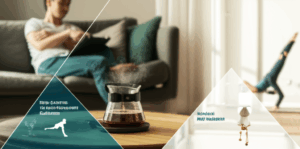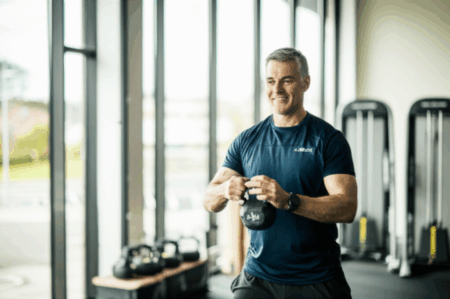For many, maintaining a consistent exercise routine is a perpetual struggle. However, a board-certified neurosurgeon, Dr. Brian Hoeflinger, has revealed a simple yet profound rule that transformed his own fitness habits: exercise the moment you get home. This principle, shared in a recent Instagram post, emphasizes the critical role of timing in overcoming distractions and ensuring daily physical activity.

Why Timing Trumps All in Fitness Consistency
Dr. Hoeflinger’s core philosophy centers on minimizing the opportunity for procrastination. He states, “I exercise the minute I get home.” The reasoning is straightforward: the longer one waits, the more distractions arise, drastically increasing the likelihood of skipping a workout altogether. “If I don’t get my exercise done right off the bat, there’s a 9 out of 10 chance I won’t do it at all,” he admits. This immediate action helps to build a habit and bypass the mental hurdles that often derail fitness intentions.
The Power of Immediate Action
The neurosurgeon’s approach highlights the importance of habit formation. By consistently exercising immediately upon returning home, he has “trained” himself to prioritize this activity, regardless of other demands. This strategy aligns with behavioral science principles, suggesting that reducing friction and increasing immediacy can significantly improve adherence to desired behaviors.

Dr. Hoeflinger’s Simple Yet Effective Routine
Despite his demanding profession, Dr. Hoeflinger maintains a consistent and achievable workout regimen. He typically engages in either three to four miles of rucking with a weighted backpack or three to four miles of light jogging. He aims to incorporate this activity “every single day.”
Daily Rucking or Jogging
This simple, repetitive routine demonstrates that high-intensity or complex workouts aren’t always necessary for consistency. The focus is on regular, moderate activity that can be sustained over the long term.

The Broader Benefits of Regular Exercise, According to Neurosurgeons
Dr. Hoeflinger’s emphasis on exercise is echoed by the broader medical community, particularly within neurosurgery, given the profound impact of physical activity on brain and spinal health.
Strengthening the Spine and Preventing Injury
Neurosurgeons consistently highlight exercise as vital for maintaining a healthy spine and preventing issues. Regular physical activity strengthens the muscles supporting the back, reduces the risk of falls and injuries, and can alleviate back strain by strengthening the abdomen, arms, and legs. Studies show that individuals who exercise regularly experience fewer spinal problems.
Enhancing Brain Health and Cognitive Function
Beyond physical benefits, exercise has significant positive effects on the brain. Neuroscientist Wendy Suzuki notes that even a single workout can immediately boost neurotransmitters like dopamine, serotonin, and noradrenaline, leading to improved mood and focus. Long-term exercise can even change brain anatomy, increasing the volume of the hippocampus, a brain area crucial for memory, and improving attention function dependent on the prefrontal cortex. These changes make the brain more resilient against neurodegenerative diseases and cognitive decline associated with aging.
Exercise as Pain Relief
Aerobic exercise, which elevates heart rate, is also recognized as a natural pain reliever due to the release of endorphins. This makes it a valuable tool for managing various forms of pain, including chronic back pain.

Overcoming Obstacles to Exercise for Busy Professionals
For professions like neurosurgery, which often involve long hours and demanding schedules, making time for exercise can be challenging. However, many medical professionals, including surgeons, stress that it’s a matter of prioritizing health. Some surgeons integrate workouts before or after long shifts, demonstrating that consistency is achievable even with a busy schedule. The CDC and American Heart Association recommend at least 150 minutes of moderate-intensity aerobic activity or 75 minutes of vigorous activity per week, along with muscle-strengthening activities twice a week.
Ultimately, Dr. Hoeflinger’s “most important rule about exercising” boils down to a fundamental principle of habit formation and self-discipline: act immediately to prevent procrastination. By making exercise the first priority upon returning home, he has found a sustainable way to integrate fitness into a demanding life, reaping the extensive physical and cognitive benefits that regular activity provides.







